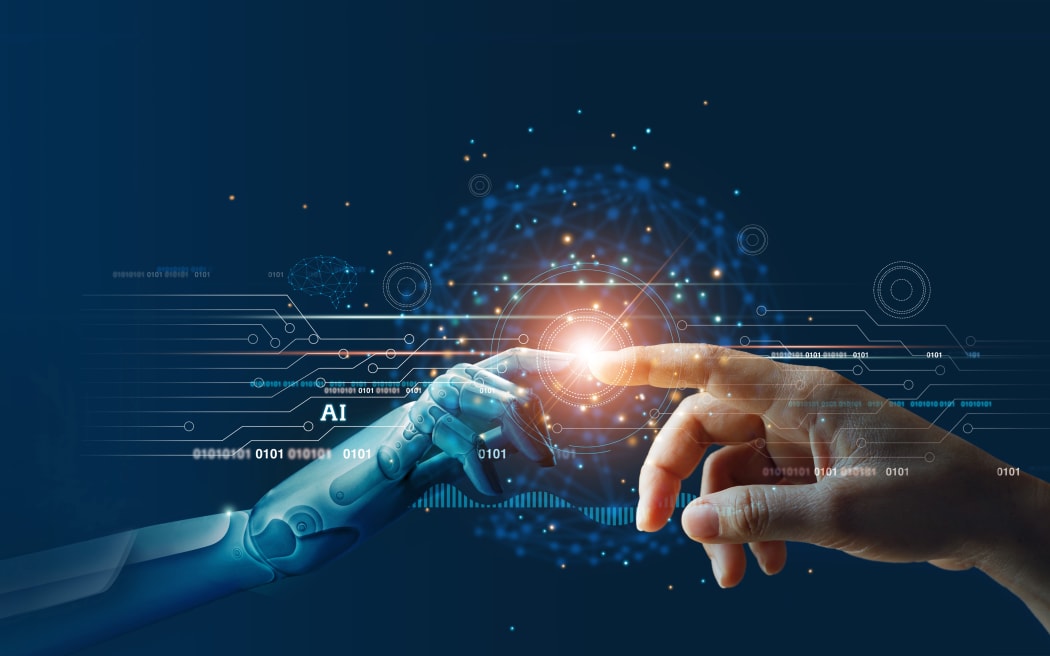At a recent briefing hosted by Ethnic Media Services (EMS), a panel of experts gathered to discuss the topic of Artificial Intelligence (AI) and its potential impact on society. The panelists included Hector Palacios, a research scientist at ServiceNow Research; Chris Dede, a senior research fellow at the Harvard Graduate School of Education; and Sean McGregor, the founder of the Responsible AI Collaborative and a machine learning Ph.D.
The panel began by addressing the concerns around AI, specifically the fear that AI could replace humans in various industries. The panelists agreed that AI has the potential to revolutionize industries, but it is important to use it responsibly and ethically. They also discussed the potential for bias in AI data, as well as the controversial use of copyrighted and creative material to educate the technology.
The Federal Trade Commission (FTC) chair Lina Khan’s statement on the potential for AI to “turbocharge fraud and automate discrimination” was also addressed. The panelists acknowledged the risks of AI being used for malicious purposes but stressed the importance of developing and implementing ethical standards for AI use.
The panelists also provided an introduction to AI and its various applications. Hector Palacios discussed his work on fundamental and applied research on AI at the intersection of reasoning and machine learning, while Chris Dede talked about the potential for AI to revolutionize education. Sean McGregor shared his expertise on the responsible use of AI, including his work on the IBM Watson AI XPRIZE and the development of the AI Incident Database.
One of the key takeaways from the discussion was the importance of understanding AI and its implications. As Hector Palacios pointed out, text is intimately connected to humans, and AI has the potential to be a revolution in education, journalism, science, and other areas of human knowledge. However, as with any technology, AI has limitations and potential drawbacks. For example, there is the potential for bias in AI data, as well as the controversial use of copyrighted and creative material to educate the technology.
Chris Dede provided insight into the National AI Institutes, a series of institutes funded by the National Science Foundation in the United States. These institutes, 25 in total, are funded for five years at $20 million each. Five of these institutes are focused on education, with the others focused on cybersecurity, agriculture, medicine, and other areas.
Dede also discussed how science fiction writers have been thinking and writing about AI for the last half century, and have worked out interesting ways of thinking about the strengths and limits of AI. He discussed two general themes in science fiction about AI: one in which AI is an independent actor out of control of human beings, and the other in which AI is a partner with humans, with a complementary relationship between the two. Dede gave an example of this complementary relationship in the Star Trek series, where Captain Picard and Data, an android based on AI, have a complementary relationship.
While AI has the potential to be a powerful tool for assisting educators and improving educational outcomes, it is important to recognize that AI is not a substitute for human judgment and expertise. As Dede pointed out, there are certain aspects of education, such as cultural sensitivity and ethical decision-making, that require a human touch and cannot be fully replicated by AI.
It is also important to address issues of bias in AI systems, as these biases can be reflective of broader societal biases and perpetuate inequality. While efforts to reduce bias in AI are important, we also need to address the root causes of bias in our society in order to create more equitable and just systems.
Overall, the panel provided valuable insights into the potential benefits and risks of AI. While AI has the potential to revolutionize various industries, it is important to approach its development and implementation with caution and responsibility. The panelists stressed the need for ethical standards and guidelines to ensure that AI is used for the greater good. They discussed the importance of developing and implementing responsible AI practices that prioritize transparency, fairness, and accountability. The panelists also recognized the risks of AI being used for malicious purposes, such as fraud and discrimination, and emphasized the need for safeguards to prevent such misuse.
In addition, the panelists discussed the potential for bias in AI data, which can be reflective of societal biases and perpetuate inequality. They highlighted the need for diverse and inclusive teams to develop and test AI systems, as well as the importance of ongoing monitoring and evaluation to identify and address any biases that may arise.
Furthermore, the panelists provided an introduction to the various applications of AI, highlighting its potential to revolutionize industries such as healthcare, transportation, and education. Hector Palacios discussed his work on fundamental and applied research on AI at the intersection of reasoning and machine learning, while Chris Dede talked about the potential for AI to personalize learning and improve educational outcomes.
Sean McGregor shared his expertise on the responsible use of AI, including his work on the IBM Watson AI XPRIZE and the development of the AI Incident Database. He emphasized the importance of involving a diverse set of stakeholders in AI development and decision-making, and of ensuring that AI is used to benefit all members of society, not just a privileged few.
Overall, the panelists provided valuable insights into the potential benefits and risks of AI, as well as the importance of responsible and ethical AI practices. As AI continues to advance and become more integrated into our daily lives, it is crucial that we approach its development and use with caution and responsibility, and prioritize the well-being and interests of all members of society.
#AI #Ethics #Technology #Education #Bias #Society #Future #AIethics #responsibleAI #AIbias #AIeducation #AIimpact #AIindustry #AIrevolution #AItechnology #AIresearch #AIdevelopment #AIapplications #AIrisks #AIresponsibility #AIstandards #AIguidelines #AIinnovation #AIpotential #AIfuture #AIpanel #AIexperts #AIdebate #AIutopiaordystopia #AItransformations #AIprogress #AIemergingtech #AIadvancements #AIethicsandresponsibility









